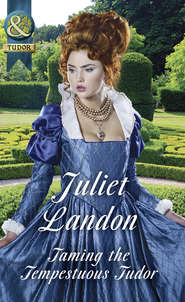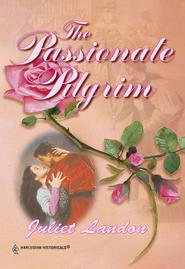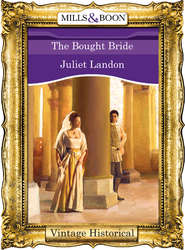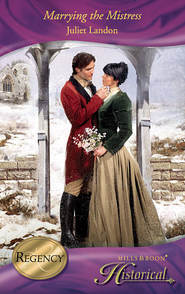По всем вопросам обращайтесь на: info@litportal.ru
(©) 2003-2024.
✖
Captive Of The Viking
Настройки чтения
Размер шрифта
Высота строк
Поля
Chapter Five (#litres_trial_promo)
Chapter Six (#litres_trial_promo)
Chapter Seven (#litres_trial_promo)
Chapter Eight (#litres_trial_promo)
Chapter Nine (#litres_trial_promo)
Chapter Ten (#litres_trial_promo)
Epilogue (#litres_trial_promo)
Author Afterword (#litres_trial_promo)
Extract (#litres_trial_promo)
Copyright (#litres_trial_promo)
Chapter One (#ulink_4d68fb5b-6e84-5a74-ba8a-9cb60eabaed2)
The year 993—Jorvik, now known as York
Even at that early hour of the day, a dense pall of smoke lay over the thatched rooftops of Jorvik like a grey blanket filtering upwards into the haze of dawn. The furnace was already roaring from the blacksmith’s workshop, from the glassmakers and potters, the bakers and the moneyer, whose task was no less exacting than the swordsmith’s. The Lady Fearn and her young maid, Haesel, kept to the path on the outer edge of the city and soon came to the river from where, for safety, the merchants’ ships had been moored upriver well away from the main wharves and the warehouses. They rocked gently on the brown water as the ferryman pulled his boat into the bank just as the two women reached it.
‘Morning, lady,’ he called. ‘You not taking the bridge, then?’
The bridge over the River Ouse was close by the wharves, now deserted in readiness for a fleet of Viking longships that had been reported entering the Humber Estuary two days ago. The merchant ships would be an obvious target. Fearn chose not to answer him. ‘Can you take us across, Gaut?’ she said. ‘We’re bound for Clementhorpe.’
Last evening, she and Haesel had put the last few stitches into a pile of linen smocks for the invalids at the little nunnery where frail and elderly townsfolk were nursed through their illnesses by twelve devoted Benedictine nuns. As the foster daughter of Earl Thored of Northumbria, Fearn did not intend an imminent Viking raid to prevent her acts of charity.
* * *
The nunnery at Clementhorpe was little more than a cluster of thatched huts, animal sheds, a larger infirmary and a church with a shingled roof situated on the very edge of Jorvik. The dense woodland sheltered pigs beyond the plots where two cows and their calves grazed, where an orchard, herb garden and neat rows of vegetables were tended by soft-spoken women in serviceable long kirtles of undyed wool. Their noble birth counted for very little here, all of them being known as ‘sister’ except Mother Bridget, the founder of the nunnery.
‘Welcome, my dears,’ she said, taking the bundles from them. ‘This is so kind of you. I hope, my lady, the Earl doesn’t mind your coming here so often.’ Her voice held an Irish lilt that set all her words to music.
Fearn smiled at her concern. Earl Thored had been baptised as a Christian, but found it difficult to shake off the advantages offered by his former paganism, believing that to call on the services of several well-tried-and-tested gods was of great help in times of emergency. The priest had done what he could to explain the meaning of sin, but so far without an unqualified success. ‘He doesn’t mind at all, Mother,’ Fearn said, following the nun into the warm interior of one of the larger houses. A fire glowed in a central hearth and two nuns stood over by one wall, working at a large upright loom taut with white woollen threads, their hands working in unison, lifting, beating, passing the shuttle. ‘He has other things on his mind,’ she added. ‘Messengers are reporting to him day and night since the Danes were sighted.’
‘He’s sure they’re Danes, then? Not Norse?’ She indicated cushioned stools and went to a bench from where she poured buttermilk into three earthenware beakers. Handing one to Fearn, she could not help but look directly at Fearn’s beautiful features: the thick black curls escaping from the white veil and gold circlet, at the black eyelashes and brows that framed her most unusual feature, her eyes, one of which was a deep mossy green, the other as blue as a bluebell. She would have been uncommonly lovely even without this strangeness, but with it, her beauty was like a magnet that held the gaze of anyone who looked on her.
Mother Bridget had hoped she would come this morning, having spent the night in prayer for her safety. One look at the woman would put her in mortal danger, for the Vikings, Danes and Norse, were renowned for their unbridled ferocity towards women. Fearn and Haesel would stand no chance against them.
‘Sure to be Danish,’ Fearn said after a sip of the cool liquid. ‘Swein Forkbeard’s men. Coming for another pay-off. He’ll not damage Jorvik again when more than half the city is made up of his own people, will he? I doubt they’ll be doing much raiding this time, Mother.’
The Reverend Mother put her beaker to one side, only her years of discipline preventing her from showing her fear. She had, after all, lived close to fear for most of her life. ‘Fearn,’ she said, as emphatically as her musical voice would allow. ‘Listen to me.’
‘I always do, Mother.’
‘Yes, but this is especially important, my dear. Whatever these men are coming for, we women are in some danger and you more than any of us. You must know what I mean. It’s taken our little community years to recover after the last time, but I refuse to run away, for then what would happen to those we care for? But if you’re right about them coming only for payment to cease their raiding, then I still believe the safest place for you and Haesel would be out there in the woods, hiding until they’ve gone. Once you show your faces in the Earl’s hall, they will want you as well as money. Stay here out of the way, I beg you.’
It was difficult for Fearn not to be moved by Mother Bridget’s concern. Such fear for her welfare was rarely shown these days, particularly not by Fearn’s husband, Barda, one of her foster father’s chosen warriors. A boastful, swaggering bully of a man, he had adopted the new Christian religion only in order to marry her, not for any other reason. Yet Fearn used his name now in the hope of persuading her blessed hostess of a better protection, knowing how he would put up a fight to protect anything that was his. Even his horse. ‘I am grateful to you, Mother. Truly I am. But I will not hide like a fugitive when there are so many of the Earl’s men to protect me. And Barda. He would not allow them to take me. Whatever else he is capable of, he would prefer not to lose me. Please stop worrying.’
Even as she said his name, all three women’s minds turned to what else he was capable of. Violence towards his wife, for one thing. Mother Bridget had seen the weals on Fearn’s body when she’d come here for treatment. Love was not something Fearn had ever felt for a man and Barda did not know the meaning of the word.
A reluctant sigh left Mother Bridget’s wrinkled lips along with a shake of her head. ‘Well,’ she said, softly, ‘I didn’t really expect you to agree, my dear. Is there nothing I could say that might persuade you?’
‘I could leave Haesel with you, being so young.’
‘Thank you, but, no!’ Haesel said, suffering two surprised stares. ‘I’m sorry, mistress, but I shall not leave you. The Reverend Mother must know that.’
‘Of course I do, child. Lady Fearn knows it, too. Let’s just hope her possessive husband is as loyal as you are. Does he know you’ve come here? Last time, you were in some trouble, I remember.’
Fearn smiled, ruefully. ‘The Earl sent him off with two others to find out what they could. They’ll be following the river up towards the coast. They may even have returned by now with some news.’
‘In which case, love, you had better drink up and head back to the hall. And think again about what I’ve said. You’ll get no better advice.’ Especially, she thought, from that obnoxious pair, Fearn’s mother-in-law and her foster mother, neither of whom had displayed any motherly traits towards Fearn, whose entry into their lives was a constant source of jealousy. ‘I’ll come with you as far as the river,’ she said, taking their empty beakers.
* * *
The River Ouse flowed deep and wide past the end of the nunnery’s orchard on its way to the Humber Estuary and the North Sea. Usually so clamorous with men’s shouts, dogs barking, the clang of hammers and children’s squealing, the river path opposite the workshops seemed eerily quiet as if the city were holding its breath. Haesel had stopped on the track and was facing in the wrong direction, towards the sun, now well risen but hazy, her body rigid with apprehension. ‘What is it?’ Fearn called. ‘You see something?’
‘Smell,’ Haesel said without turning round. ‘Can you smell it?’
Fearn and Mother Bridget lifted their heads to sniff. ‘Smoke,’ they whispered. ‘That’s not Jorvik smoke.’ Their eyes strained into the distance where lay several small villages along the banks of the river where plumes of white and dark grey smoke rose almost vertically into the sky pierced by sharp spears of flame. ‘It’s them!’ Fearn said. ‘Oh, may God have mercy on us. They are raiding. They’ll be here in no time at all. We must run. Warn Earl Thored. Quick! Run! Mother Bridget...go back! Go!’
The elderly nun balked, fearful not for herself but for the two lovely women who now seemed closer than ever to her worst predictions. ‘Fearn, please come back with me...don’t go...be one of us...hide in the woods...it’s safer...’ The two, old and young, clung together, parted and clung again.
‘No, Mother. They’ll not ravage the city again. Now, go quickly. I’ll send a message when they’ve gone. Hurry!’ she called, already running with Haesel towards the ferry. ‘May God protect you.’
But Mother Bridget did not run and, as Fearn looked back to see, she was standing on the path with both hands holding her head. The masts of the boats would soon be seen rounding the bend of the river—that was certain.
Expecting Gaut to be manning the ferry, as before, they were horrified to see that he had deserted it, though fortunately the boat was on their side of the river. They took an oar each, fumbling and rattling them in the rowlocks to bring them into some kind of unison which, in more normal circumstances, would have made them double up with helpless laughter. But not this time, for the current was strong enough to push the boat further down the bank than the jetty, making it impossible for them to clamber out without wading up to their knees in muddy water. Their walk along the path up to that corner of the city known as Earlsbrough, where the great Hall of the Earls was situated, was by no means as dignified as their exit had been one hour earlier. And to make matters worse, their arrival through a small opening in the enclosure was seen and intercepted by her two most critical relatives, horrified to see the two muddy young women with wet gowns clinging to their legs. Catla, her mother-in-law, and Hilda, her foster mother, wife of Earl Thored.
Having been advised more than once by the priest that a little subservience in her manner towards these two would not come amiss, on occasion, Fearn decided that now was not the time, with a Viking raid imminent. ‘Yes...yes, I know,’ she said to Catla, ‘but never mind the mess. Where is Earl Thored? There are raiders coming up the river and they’re not far away. Is he in the hall?’
‘If you mean the Danes,’ Catla said, icily, ‘your foster father has already been informed, so there was no need for you to act the heroine and be the first to tell him so. The situation is well under control.’ Her lined face registered a cold dislike of her daughter-in-law.
‘He knows?’ Fearn said. ‘Then Barda has returned?’
‘No, he has not, yet. But when he does, he’d better not see you looking like that, had he? Now I suggest you go inside and get that maid of yours to earn her keep and tend you, instead of playing silly water games. I have a mind to have her whipped.’
‘You’ll do no such thing, Catla. She probably saved me from drowning.’
With looks of deep disapproval, Catla and Hilda turned away, but not before making sure that Fearn heard Catla’s parting shot. ‘Pity,’ she muttered.
Fearn had never been under any illusions about the woman’s hostility towards her, but this undisguised malice stung, especially when women were expected to support and comfort each other in times of crisis. All the same, she could hardly subdue a leap of guilty relief at the news of Barda’s continued absence. The longer he took to do his scouting, the easier she would feel, but she refused to imagine what might be the reason, for that was a dangerous path to tread.
Waiting until the two older women were out of sight, Fearn went directly to the great hall where Earl Thored would give her the latest news. Her skirts still clung to her legs and her bootees squelched on the wooden floor as she approached, though her efforts not to attract attention to herself were rarely successful. For one thing, few women were allowed to take part in any discussion unless they had a role to play and, for another thing, so many of the Earl’s men desired her that it was asking too much of them not to be affected by her presence, dripping wet or not.











